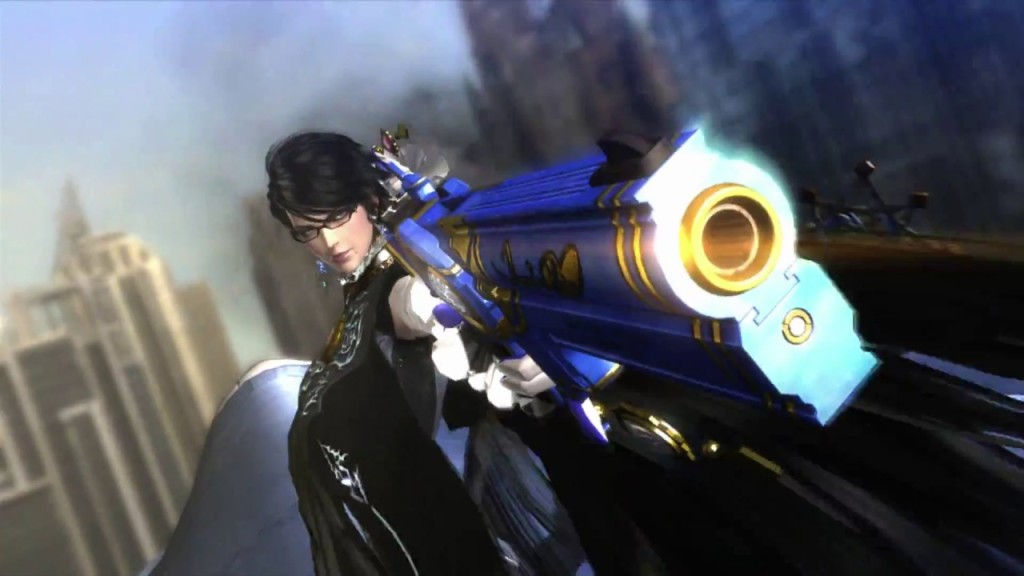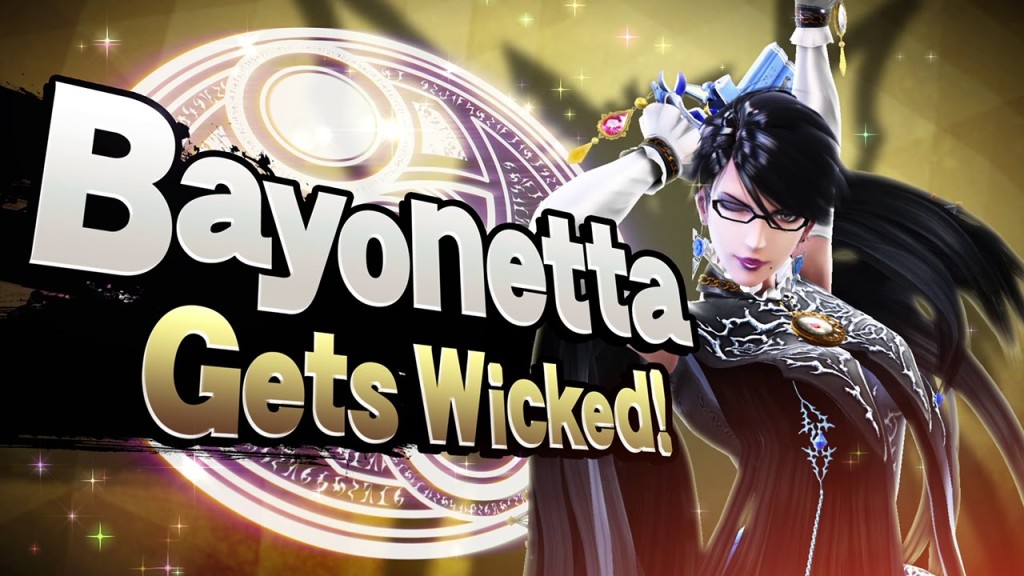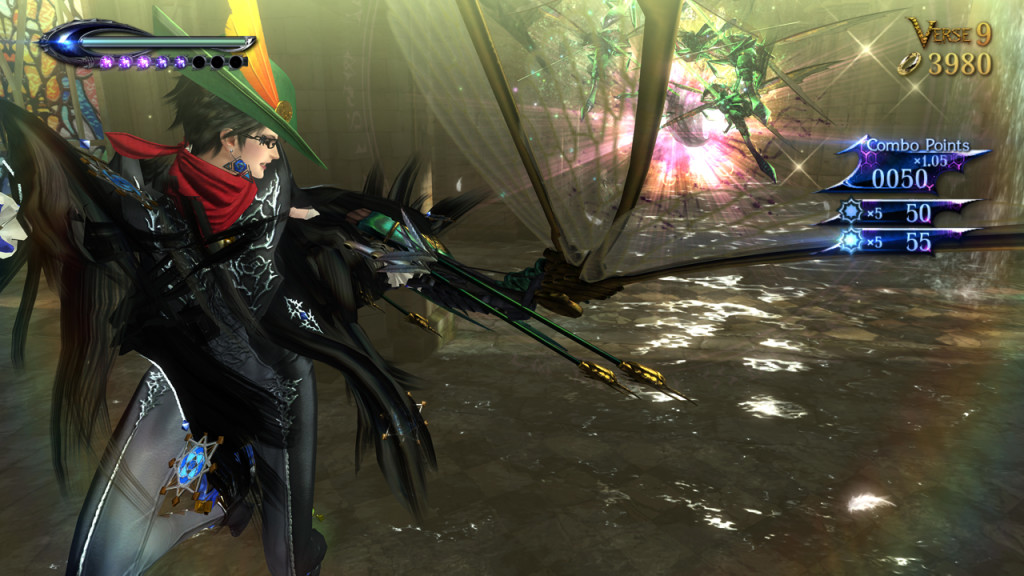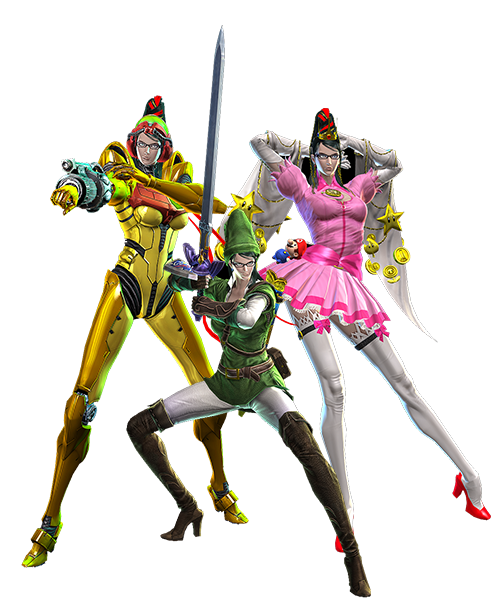It seems, every other week or so, somebody mentions Bayonetta to me in a specifically Christian context. I imagine that’s because I barely talk about the possibly objectionable elements in the game; rather, I like to see all the positive stuff in it beyond all else. Let’s face it, Bayonetta‘s a spectacular stylish-combat experience that’s incredibly self-aware about the fact that it is an absurd video game, and (like most of Platinum’s work) it plays to that objective. Honestly, just talking about it with people gives me the urge to play the entire game again (or its sequel, depends on my mood).

But, since I seem to be encountering this repeatedly, I’d like to clear the air on it:
Bayonetta absolutely does contain things that are objectionable to Christians
Such things include: the concepts of angels, demons, Heaven, Hell, Purgatory, resurrection, the concept of a soul and its movement through various realms, a war between Paradiso and Purgatorio (more Manichaen than anything else, but it’s pretty close for most people), making deals with demons to summon things, magical spells, witchcraft, cursing, stripping, sexuality in a forward taunting way, objectifying shots of the main character in her outfit made completely out of hair, summoning demons through magical hair, the number 666 (found in “Route 666”, if the joke wasn’t apparent), and probably some other things I don’t remember off the top of my head.
If you can’t deal with these things, than I say: don’t play it. And, I imagine, the Apostle Paul would agree. Think of it like this: Paul writes a letter to the Corinthians; meat sacrificed to idols was a huge deal. It was, in a sense, like playing with fire, possibly syncretism, in the early Church. But Paul does not seem to think this way; instead, he says this in 1 Corinthians 8:
Now concerning things sacrificed to idols, we know that we all have knowledge. Knowledge [a]makes arrogant, but love edifies. 2 If anyone supposes that he knows anything, he has not yet known as he ought to know; 3 but if anyone loves God, he is known by Him.
Knowledge, absolutely, can make one arrogant. I know this from personal experience! Paul knows the Corinthians don’t have much of a problem eating meat sacrificed to idols, so why does he mention it.
4 Therefore concerning the eating of things sacrificed to idols, we know that [b]there is no such thing as an idol in the world, and that there is no God but one. 5 For even if there are so-called gods whether in heaven or on earth, as indeed there are many gods and many lords, 6 yet for us there is but one God, the Father, from whom are all things and we exist for Him; and one Lord, Jesus Christ, by whom are all things, and we exist through Him.
Again, we see that, conceptually, Paul knows that it isn’t wrong to eat meat sacrificed to idols. “There is no God but one” is a fundamental tenet of all the Abrahamic religions (although Christianity contains a Trinity, to digress a bit). Paul obviously shows no problem with the act of eating meat sacrificed to idols, because those gods are either completely ineffectual, you eat that food because it’s available, or that the intent of why you eat it has nothing to do with idol worship.
But, again, we return to Paul’s claim at the start of this section: we all have knowledge, but this knowledge can make us arrogant. That is, it can make it difficult for those who haven’t been a Christian as long, or who do not understand Christian liberty in its fullest form, to see fellow Christians eating foods sacrificed to other gods. Apparently, this is a big enough problem for Paul to point this out: some Christians cannot remove themselves from that “idol worship” context, and thus cannot engage in that action.
7 However not all men have this knowledge; but some, being accustomed to the idol until now, eat food as if it were sacrificed to an idol; and their conscience being weak is defiled. 8 But food will not [c]commend us to God; we are neither [d]the worse if we do not eat, nor [e]the better if we do eat.
It’s clear to me that Paul sees the discrepancy here: new Christians will, repeat, will have problems doing things they used to do. Their conscience in the Holy Spirit, awakened to new truth, sees many of the things in which they engaged as…well, pretty terrible, let’s put it that way. But that does not make those things wrong; rather, the approach itself becomes incorrect. The action of eating meat sacrificed to idols for a person still used to that mode of life who converts, that we simply worship idols before we eat, becomes a sin for them. Even though Christians can do this, that doesn’t mean they should.
That makes Paul’s next words especially difficult for a blog focused around video games – a medium that contains many, many, many sources of objectionable content that could offend anybody, or become a stumbling block to a lot of people.
9 But take care that this [f]liberty of yours does not somehow become a stumbling block to the weak. 10 For if someone sees you, who have knowledge, dining in an idol’s temple, will not his conscience, if he is weak, be strengthened to eat things sacrificed to idols? 11 For through your knowledge he who is weak is ruined, the brother for whose sake Christ died. 12 And so, by sinning against the brethren and wounding their conscience when it is weak, you sin against Christ. 13 Therefore, if food causes my brother to stumble, I will never eat meat again, so that I will not cause my brother to stumble.
So, an online blog poses a unique challenge in this case. Clearly, praising games which could prove problematic isn’t useful or helpful to the Body. On the other hand, other Christians could find something quite worthwhile in games they rejected heretofore, or would never experience if the appearance of said game was such a stumbling block. Literally anyone who reads my Bayonetta (and Bayonetta 2) discussion could find themselves highly intrigued, or find a stumbling block they cannot pass. What a strange dilemma!

Here is how I like to think of it: on the Internet, the possibility for offense is always enormous. Text can make one look cruel, lacks nuance, and often provides more hurt than help. I can’t take into account every possible person who will find themselves on Theology Gaming, believer or not. As a person steeped in theological training, though, my objective is teaching, rather than lording my Christian freedom over others. Knowledge can lead to pride, but that’s not what I mean to do here. I would rather explain why I like something, and let you draw your own conclusions as a result.
So, let us explain! I honestly never had a problem with Bayonetta personally, or most any games from Japan that involve using the aesthetic complements of heaven, hell, etc. as imagined by popular culture. Part of the reason is that, more often than not, their understanding comes from a completely different cultural context – i.e., Shintoism with a mix of Buddhism here and there. As such, they see concepts from Christianity as an interesting well to draw new video game ideas from, and they do this with most world religions too (most Final Fantasy summons are derived from various world religions, like Shiva from Hinduism, just for one of many example). As such, it doesn’t have any relation to the real thing, far as I am concerned. There’s also the whole “the Church is EVIL” sorta thing in JRPGs, which has a lot to do with anti-Christian sentiment around the 1500-1600s by the Tokugawa shogunate (that’s some fascinating reading, if you’re interested).

The metaphysical structure of Bayonetta, too, is much more bizarre and less straightforward. It’s Purgatorio, Paradiso, and Inferno; the latter two are warring factions in this world which also had their own human representative (the Lumen Sages and the Umbran Witches, of which Bayonetta is a child of both) fighting a war for dominance. It takes more from Manichaeism than Christianity, but so do most mass-market interpretations of Christian materials. It goes without saying that the Route 666 mission is supposed to be a fun play on words, since even the Japanese are familiar with the number from American horror films (and that mission is really more an After Burner and Outrun tribute than anything else). Plus, Bayonetta 2 involves her fighting angels and demons from this universe, because she really holds no formal allegiance to either.
It’s all meant to be tongue-in-cheek, and in good fun, not to be taken very seriously. This is a long way to say that this stuff doesn’t bother me all that much, because my familiarity with actual Christianity means I’m not all that insulated that people who aren’t Christians misinterpret this stuff. But, I would say, if it does bother you to play it or think about, then don’t. My opinion is by no means the final say, as Paul demonstrates. It’s a matter of your personal comfort level with some stuff, and that means a game like Bayonetta may be something you don’t want to play.

More often than not, Bayonetta’s a very funny game that knows it is, in fact, a video game. And that makes me enjoy it, a lot. But you might think different, and that’s OK!
